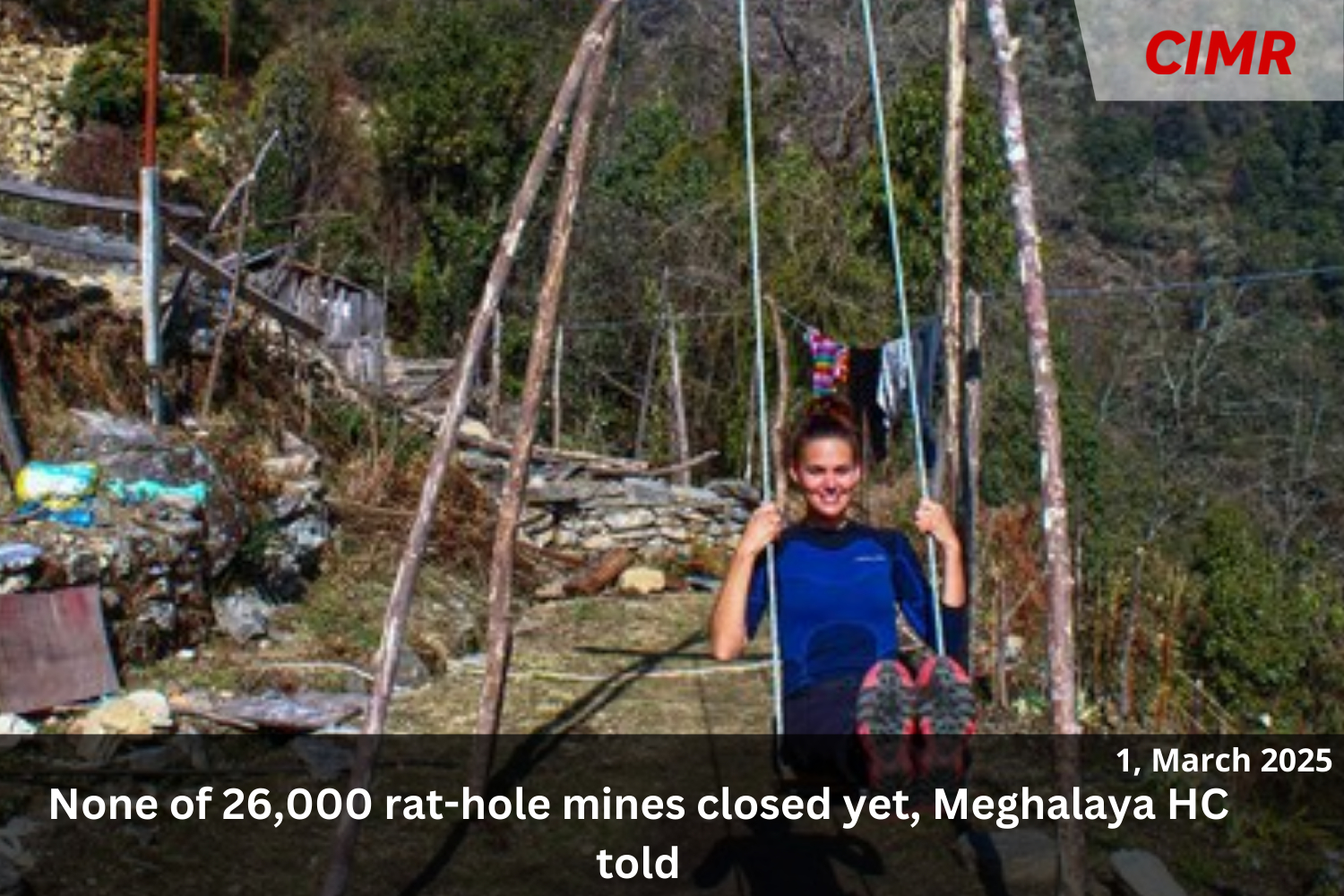A committee set up to oversee the mining and coal transportation in the northeastern state has released an interim report stating that none of the 26,000 abandoned rat-hole mines in the East Jaintia Hills district of Meghalaya have been closed despite an order, posing a risk to human and livestock lives.
The 22nd interim report of retired judge BK Katakey’s single-member committee was presented before the Meghalaya high court on Tuesday. In it, the committee emphasised the urgent need to implement the project for the closure of abandoned mines. It further said that the department of mining and geology needed to move quickly to prepare a detail project report (DPR) for that reason.
Rat-hole mining in Meghalaya was prohibited by the National Green Tribunal (NGT) ten years ago on the grounds that it was unscientific; yet, the unlawful practise persists to this day and has been responsible for several deaths. The panel had also prohibited the transportation of coal in the Himalayan state in its April 2014 judgement.
The Central Mine Planning and Design Institute Limited (CMPDI) is now preparing a DPR, thus as of right now, not a single abandoned mine has been closed, according to the article. According to records, there are over 26,000 rat-hole mine holes in the East Jaintia Hills District alone. These openings must be sealed due to the prohibition on rat-hole coal mining in order to reduce the danger of animal and human fatalities.
The report of the high court-constituted panel, however, makes no mention of the state of the abandoned rat-hole mines in the districts of South West Khasi Hills, West Khasi Hills, and South Garo Hills.
Rat-hole mining is the term for the laborious process of excavating through mines with hand-held equipment. In order for miners to enter and retrieve coal, it entails excavating rat-holes, or narrow horizontal tunnels, that are typically 3–4 feet high.
Despite being illegal, the technique became well-known across the country in November of last year when a dozen rat-miners contributed a clinical touch to the otherwise laborious rescue effort that freed forty-one workers who were trapped in an Uttarakhand tunnel that was still under construction.
“Taking necessary steps by the concerned departments urgently for restoration of environmental damages caused due to coal mining” is another recommendation made by the high court-appointed committee. It also proposed fencing the holes until the mines are closed to prevent anyone from approaching the pits.
The panel noted that funds for the implementation of the action plan created for the restoration of environmental damages caused by mining activities are available under the Meghalaya Environment Protection and Restoration Fund (MEPRF) at approximately ₹400 crore and under the Central Pollution Control Board fund at approximately ₹100 crore.
The report added that the people impacted by coal mining are still suffering due to the ongoing Acid Mine Drainage (AMD) from the mine pits that have not yet been closed. “No progress appears to have been made in taking steps for restoration of environmental damage caused by coal mining activities except sanction of a few projects out of the MEPRF, which are also yet to be audited,” the report said.
The panel has also suggested giving the East Jaintia Hills district deputy commissioner an additional 15 days to confirm the availability and transfer of 70,317.66 MT of re-assessed/re-verified inventoried coal pithead to the designated depot of Coal India Limited (CIL).
“The deputy commissioners of the districts shall take appropriate measures for the prompt disposal of the applications filed before the appropriate courts of law requesting permission for the public auction disposal of the seized coal,” the statement stated.
None of 26,000 Rat-Hole Mines Closed Yet, Meghalaya HC Told
In a shocking revelation, the Meghalaya High Court has been informed that none of the 26,000 rat-hole mines in the state have been closed, despite a ban imposed by the National Green Tribunal (NGT) in 2014. The information was presented during a hearing on the ongoing environmental and safety concerns posed by illegal mining in the state.
Continued Environmental and Safety Hazards
Despite repeated directives, illegal rat-hole mining remains rampant in Meghalaya. These mines, known for their hazardous conditions and lack of regulation, continue to pose severe environmental threats, including:
- Severe Water Contamination: Toxic runoff from abandoned mines pollutes rivers and groundwater.
- Deforestation and Land Degradation: Large-scale illegal mining leads to ecosystem destruction.
- Human Casualties: Unsafe working conditions frequently result in accidents and fatalities among miners.
Legal and Administrative Challenges
Authorities have cited difficulties in enforcement due to the involvement of powerful local interests and logistical challenges in identifying and sealing illegal mines. The High Court has urged the state government to take immediate steps toward compliance and submit an action plan.
With the lack of enforcement continuing to endanger lives and the environment, concerns over Meghalaya’s mining crisis remain a pressing issue.
Group Media Publication
Construction, Infrastructure and Mining
General News Platforms – IHTLive.com
Entertainment News Platforms – https://anyflix.in/
Legal and Laws News Platforms – https://legalmatters.in/
Podcast Platforms – https://anyfm.in/





